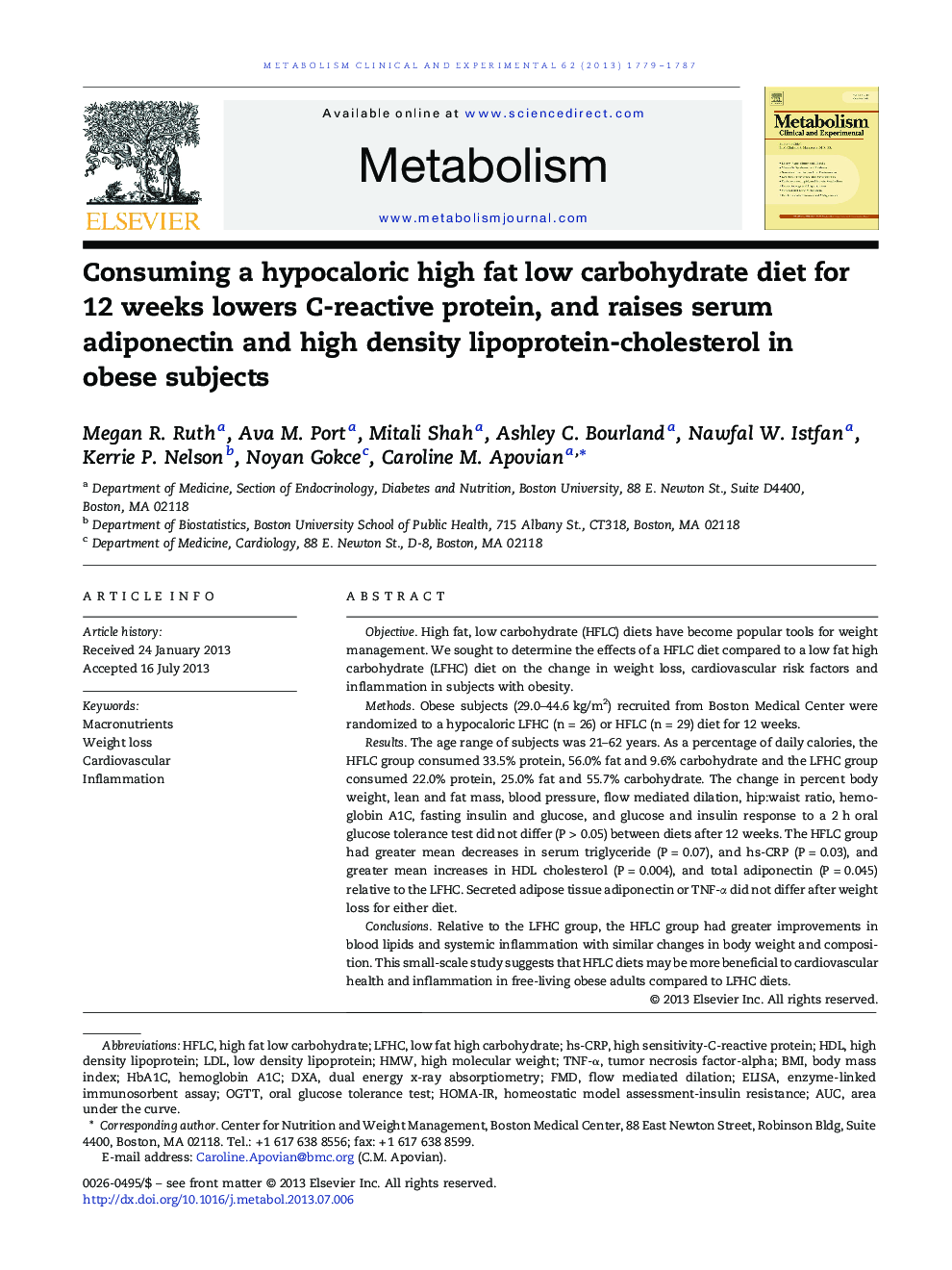| Article ID | Journal | Published Year | Pages | File Type |
|---|---|---|---|---|
| 2805697 | Metabolism | 2013 | 9 Pages |
ObjectiveHigh fat, low carbohydrate (HFLC) diets have become popular tools for weight management. We sought to determine the effects of a HFLC diet compared to a low fat high carbohydrate (LFHC) diet on the change in weight loss, cardiovascular risk factors and inflammation in subjects with obesity.MethodsObese subjects (29.0–44.6 kg/m2) recruited from Boston Medical Center were randomized to a hypocaloric LFHC (n = 26) or HFLC (n = 29) diet for 12 weeks.ResultsThe age range of subjects was 21–62 years. As a percentage of daily calories, the HFLC group consumed 33.5% protein, 56.0% fat and 9.6% carbohydrate and the LFHC group consumed 22.0% protein, 25.0% fat and 55.7% carbohydrate. The change in percent body weight, lean and fat mass, blood pressure, flow mediated dilation, hip:waist ratio, hemoglobin A1C, fasting insulin and glucose, and glucose and insulin response to a 2 h oral glucose tolerance test did not differ (P > 0.05) between diets after 12 weeks. The HFLC group had greater mean decreases in serum triglyceride (P = 0.07), and hs-CRP (P = 0.03), and greater mean increases in HDL cholesterol (P = 0.004), and total adiponectin (P = 0.045) relative to the LFHC. Secreted adipose tissue adiponectin or TNF-α did not differ after weight loss for either diet.ConclusionsRelative to the LFHC group, the HFLC group had greater improvements in blood lipids and systemic inflammation with similar changes in body weight and composition. This small-scale study suggests that HFLC diets may be more beneficial to cardiovascular health and inflammation in free-living obese adults compared to LFHC diets.
